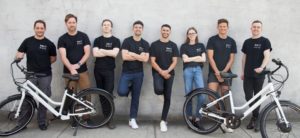Virginia-based space startup Lynk has established successful connections from ordinary mobile phones across the United States, United Kingdom, and the Bahamas, proving that a direct connection from everyday devices to satellite is possible.
On September 29, 2021, the space startup said that it has successfully demonstrated the ability to use ordinary, unmodified mobile telephones to connect to satellite Internet services. The announcement comes three months after Lynk sent the world’s first satellite cell tower into orbit.
Link vs. others
The space startup sent its satellite “Shannon” into orbit three months ago as part of a rideshare mission on a Falcon 9 rocket. Many companies like SpaceX and Amazon have been working on similar tech but have so far only been able to create connections by routing the satellite’s signals through a physical terminal on Earth first.
“Shannon,” on the other hand, needs no additional hard- or software and can be used by any mobile phone.
After initial tests, the company has announced that it connected “hundreds” of mobile phones with their satellite as it passed overhead as if it were a virtual cell phone tower in space. This brings the company close to creating a worldwide broadband internet coverage that reaches every remote yet-unserviced location on Earth.
“Our satellite looks to your cell phone as a standard cell tower,” said Charles Miller, the co-founder and chief executive of Lynk.
Lynk’s Expansion Plans
They’re starting small, however, as Shannon’s limited bandwidth only allows for text message service. According to Lynk, this is already an important step towards saving the lives of those lost in the mountains or at sea.
They also list the aftermaths of natural disasters such as hurricanes as events for which this texting service could be life-saving. The company would have to dramatically increase the number of satellites in orbit to reach its long-term goal, which has already elicited some concern.
On Earth, mobile network providers such as T-Mobile and Verizon in the U.S. will have to partner with Lynk to make satellite internet available. So far, Lynk has gained network partners in the Central African Republic and the Bahamas, and with Shannon’s success, it is likely to close more deals soon.
While this would mean that the service cost would be up to each mobile carrier, Lynk wants to ensure that at least emergency services are provided to everyone for free.

































